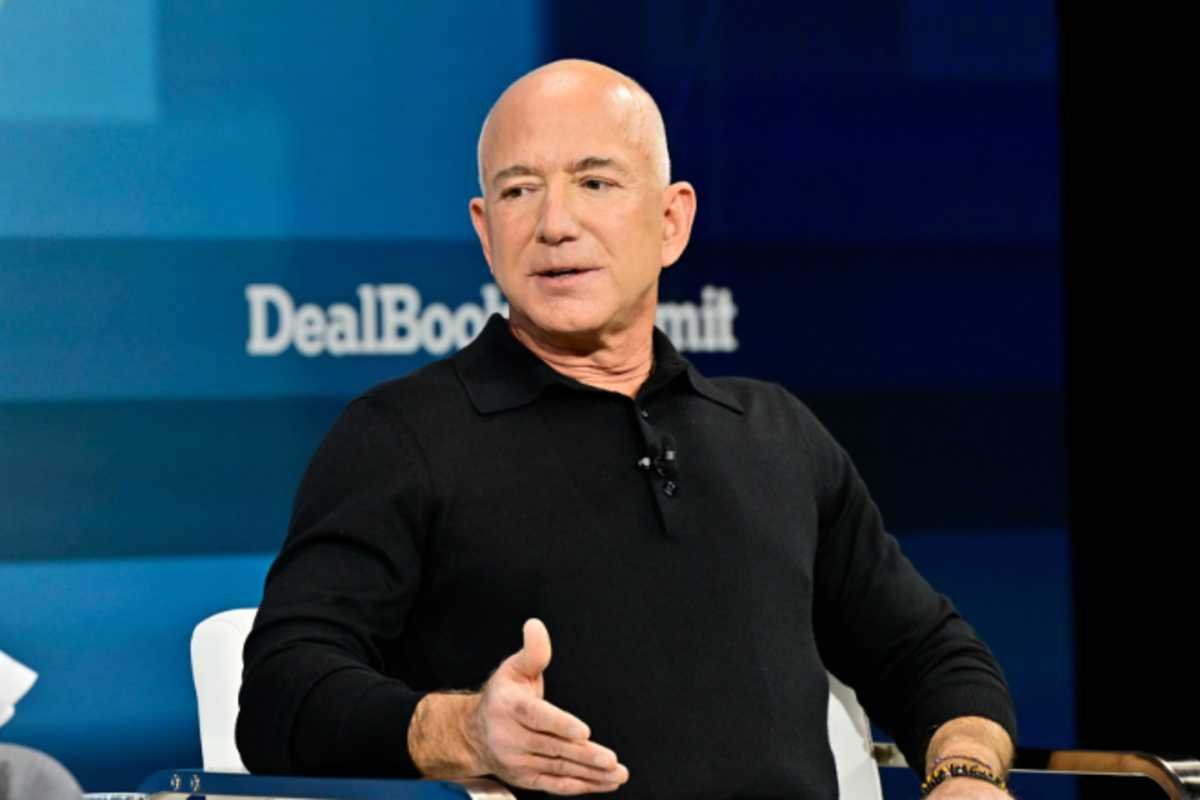Jeff Bezos is one of the most influential figures in modern business history. Known as the founder of Amazon, his story is a tale of bold vision, calculated risk, and relentless ambition. From humble beginnings in a Seattle garage to becoming one of the richest individuals on the planet, Bezos’s journey mirrors the rise of the digital economy and the transformative power of technology.
This article traces the milestones of Jeff Bezos’s life—from his early years and the birth of Amazon to its disruptive growth, diversification, and his eventual shift into space exploration. Bezos didn’t just build an online bookstore; he redefined how the world shops, reads, and even thinks about the future of humanity.
Table of contents
From New Mexico to Wall Street: The Making of Jeff Bezos
Jeffrey Preston Bezos was born on January 12, 1964, in Albuquerque, New Mexico. Raised by his mother and later adopted by his Cuban stepfather, Miguel Bezos, Jeff displayed an early interest in science and technology. His curiosity and discipline were evident from a young age: he set up an electric alarm system to keep siblings out of his room and spent summers working on his grandfather’s ranch, fixing windmills and repairing farm equipment.
Bezos graduated as valedictorian of his high school and went on to study computer science and electrical engineering at Princeton University. After college, he worked at several Wall Street firms, including Fitel, Bankers Trust, and finally D. E. Shaw, where he rose to the position of senior vice president. Despite a lucrative career in finance, Bezos saw a bigger opportunity on the horizon: the explosive growth of the internet.
The Birth of Amazon: “Get Big Fast”
In 1994, Bezos left Wall Street and drove across the country to Seattle to start an online business. From the garage of his rented home, he launched Amazon.com in July 1995. The original idea was simple but ambitious: build the world’s largest online bookstore.
Amazon’s early success came quickly. Within 30 days of launch, the company had sold books in all 50 U.S. states and over 40 countries. Bezos’s leadership style, marked by a long-term mindset and obsessive customer focus, set the tone for Amazon’s culture. He famously adopted the motto “Get Big Fast,” pushing the company to scale rapidly, even if it meant operating at a loss for years.
Despite skepticism from analysts and investors, Bezos’s gamble paid off. By 1997, Amazon went public. Its IPO raised $54 million, and although the dot-com bubble posed serious challenges in the early 2000s, Amazon emerged stronger, expanding into new product categories like electronics, toys, and clothing.
Reinventing Retail: The Amazon Way
What truly set Amazon apart was not just its product range, but its innovations in logistics, customer experience, and technology. Bezos invested heavily in warehouses (fulfillment centers), supply chain optimization, and recommendation algorithms. These behind-the-scenes systems allowed Amazon to fulfill orders faster and more accurately than traditional retailers.
In 2005, Amazon introduced Amazon Prime, a membership program offering free two-day shipping. This move transformed customer expectations across the entire e-commerce industry. Prime soon added streaming video, music, and exclusive deals, creating a deeply loyal user base.
Meanwhile, Bezos continued to expand Amazon’s reach. The company acquired companies like Zappos, Whole Foods, and Twitch. It also pioneered new products like the Kindle e-reader and the Alexa voice assistant. By the mid-2010s, Amazon had become not just a retailer, but a tech company, logistics powerhouse, and content creator.
Amazon Web Services: The Hidden Engine of Profit
Perhaps the most underappreciated pillar of Bezos’s empire is Amazon Web Services (AWS). Launched in 2006, AWS began as a way to rent out unused server capacity to other businesses. It soon exploded into the world’s largest cloud computing platform, powering websites, apps, and data storage for companies around the globe.
AWS became Amazon’s most profitable division, generating billions in revenue and funding other areas of the company that were less profitable or still growing. While retail margins were razor-thin, AWS margins were robust—giving Bezos the financial freedom to experiment and expand.
This strategic diversification protected Amazon from economic downturns and gave it a commanding position in one of the most critical sectors of the digital age. Today, AWS is a cornerstone of the internet’s infrastructure, and a key reason why Amazon is among the world’s most valuable companies.
Bezos the Disruptor: Leadership, Criticism, and Culture
Jeff Bezos’s leadership style has been both praised and criticized. Internally, he is known for his data-driven decision-making, high standards, and relentless focus on efficiency. Amazon’s corporate culture, shaped by Bezos’s 14 Leadership Principles, emphasizes ownership, frugality, and customer obsession.
However, critics have pointed to harsh working conditions in Amazon warehouses, aggressive treatment of third-party sellers, and the company’s role in accelerating the decline of traditional retail. Bezos’s wealth has also drawn scrutiny, especially amid growing debates about income inequality and corporate responsibility.
In 2021, Bezos stepped down as CEO and became Executive Chairman, handing the reins to Andy Jassy, the former head of AWS. While Bezos remains involved in Amazon’s strategic direction, his focus has shifted increasingly toward other ventures—most notably Blue Origin, his private space company.
Beyond Earth: Jeff Bezos and the Future of Space
With Amazon on stable footing, Bezos turned his attention to one of his lifelong dreams: space travel. In 2000, he founded Blue Origin, a company focused on making space more accessible through reusable rocket technology. Its motto, Gradatim Ferociter (“Step by Step, Ferociously”), reflects Bezos’s methodical approach to long-term goals.
Blue Origin has achieved several successful suborbital flights and is competing with SpaceX and others for contracts and partnerships with NASA and the commercial space sector. In 2021, Bezos himself traveled to the edge of space aboard Blue Origin’s New Shepard rocket.
His vision extends far beyond space tourism. Bezos has spoken publicly about his desire to move heavy industry off Earth and preserve the planet for future generations. Like his journey with Amazon, this new chapter is driven by big, bold ideas—and the patience to pursue them over decades.
Jeff Bezos is not merely an entrepreneur; he is an architect of the digital era. From the early days of selling books online to pioneering cloud computing and exploring space, his career has reshaped how we live, shop, and think about the future. Love him or loathe him, Bezos embodies the transformative power of technology—and the ambition to use it to reshape the world.













